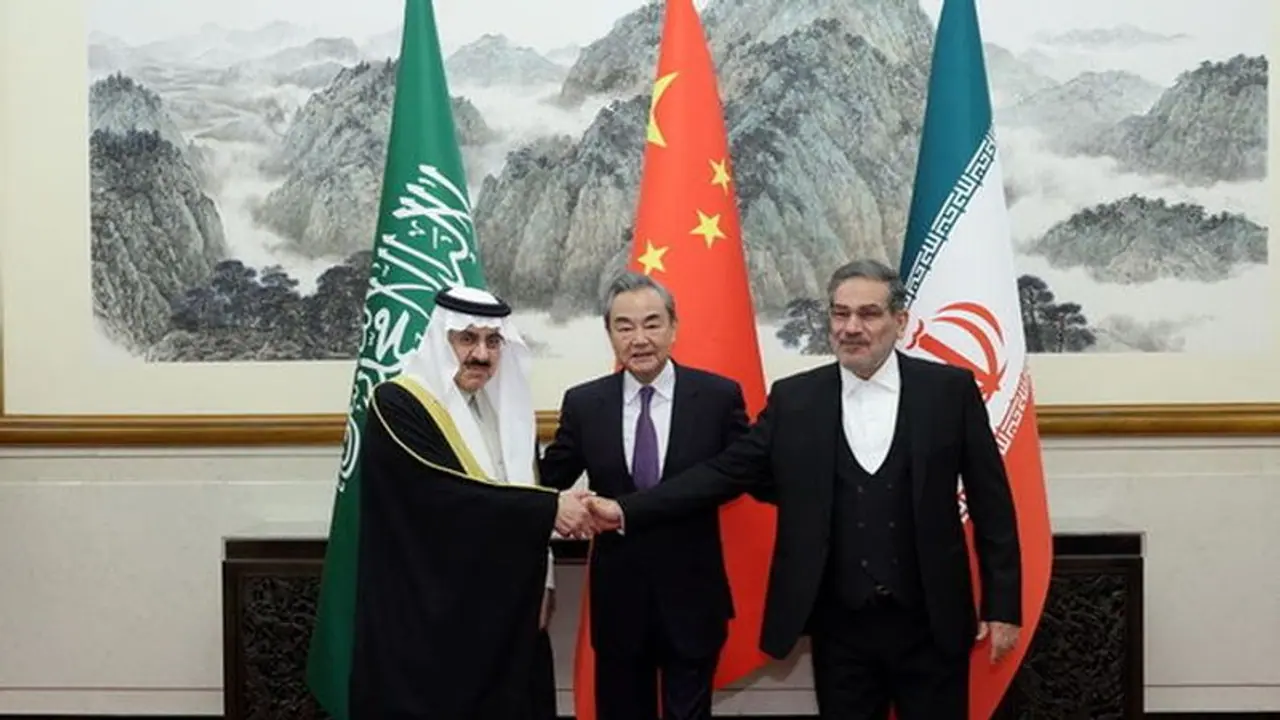Even though China has brokered the deal between two regional giants, that doesn't institute China as the new regional power, replacing the United States, say experts. But there are still reasons why India and United States should be worried
Iran and Saudi Arabia's announcement to resume diplomatic relations, brokered by China, is a significant development -- one that would have far-reaching implications for the strained geopolitical situation in the Middle East or the West Asian region, experts believe.

The experts believe that the development is in New Delhi’s interest while maintaining that it is a matter of concern for the United States, which has been in a dominant position in the Gulf countries or the Middle East since World War II.
Russian Su-27 fighters dumped fuel on US drone: How did they do it?
Asianet Newsable talked to two experts on global politics, especially in West Asian countries, to understand the development in depth.
Ambassador Anil Trigunayat (Retd), who had served in the West Asian countries and currently heads the West Asia Experts Group at Vivekananda International Foundation, told Asianet Newsable: "It is an important development and a necessary and sufficient condition for Beijing's regional outreach and growing Border Road Initiative (BRI) footprints."
Diplomatic ties between the two countries were ruptured in 2016 after a Saudi Shia cleric, Nimr al-Nimr's execution. Iranian protesters attacked the Saudi embassy in Tehran and the consulate in Mashhad.
Ambassador Anil Trigunayat said it is indeed a feather in the Chinese Guan hat. The former ambassador was of the opinion that the benefits of the reconciliation is yet to be seen.
"There are several things, which need to be seen here, such as how the Chinese would address the Saudis' concerns like Iran's nuclear ambitions, the quest for religious supremacy, and contest for the Islamic leadership, among others," he said.
Another West Asian region expert, Md Muddassir Quamar, who is an associate fellow at the Manohar Parrikar IDSA, said: "It is too early to say that the trilateral announcement would lead to a serious rapprochement between two Middle East countries. It would be premature to say that it will help resolve many of the protracted regional conflicts and help reduce security risks in the Gulf."
He was also of the view that even though China has brokered the deal between two regional giants, that doesn't institute China as the new regional power, replacing the United States.
When asked about the development in India's context, Md Muddassir Quamar said: "It is a welcome development. It is something that India wants security, peace and stability in the Middle East. So if Saudi Arabia and Iran actually live peacefully or without any conflict is a welcome development."
"My point is that a stable gulf is in India’s interest. Any rivalry, conflict or tension between these countries is a threat to India"s interest because it weakens regional security, stability and peace," he said, adding, however that the "Chinese's hand is a worry for India because of obvious reasons"
In the United States context, the MP-IDSA fellow said: "But in the context of rivalry, tension and geopolitical developments between the United States and China, it is a major development because it is for the first time that China has actually shown that it can influence politics in the Middle East or West Asia region. So far, it has been about China's growing economic engagement in the region. But this development shows that China is also interested in political and strategic clout in the region."
For the US, "it is a worrying development because since the last 60-70 years, it has maintained a dominant role in the region. This is a clear indication that China is a competitor or rival or one can also say a threat to the US dominance in the Middle East," he added.
Background of Iran-Saudi Arabia rivalry
The two countries have been vying for geopolitical and geostrategic superiority since the 1979 Iranian Islamic revolution. Under the Rafsanjani presidency in Iran, the two countries reestablished their diplomatic ties in the 1990s, but the situation changed after the US invasion of Iraq in 2003. Since 2021, Iraq and Oman have been mediating between the two countries to ease tension and bring normalcy to the region.
Major policy shift; US resolution recognises McMahon Line, calls Arunachal Pradesh part of India
